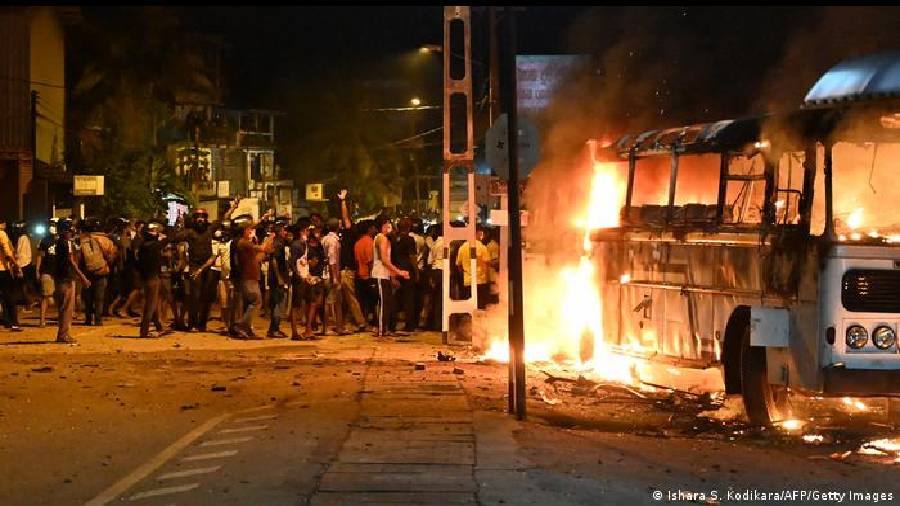Hundreds of people, angered by Sri Lanka's worst economic downturn in decades, protested near the president's home in Colombo. Security forces used tear gas and water cannons to dissuade the crowd.
An overnight curfew was imposed in parts of the Sri Lankan capital of Colombo after protests outside President Gotabaya Rajapaksa's residence turned violent late on Thursday.
The indefinite curfew — which remained in place in the early hours of Friday — came after widespread demonstrations over the government's handling of the South Asian nation's worst economic crisis in decades.
Hundreds of protesters gathered near Gotabaya's home in Mirihana residential quarter, demanding his resignation.
Security forces opened fire and used tear gas and water cannons as the protesters tried to storm the President's home, reports said.
It was unclear whether the authorities used live rounds or rubber bullets.
The crowd set an army bus and a police vehicle on fire.
The protesters — some of whom were wearing motorcycle helmets — also toppled a neighbor's wall and used bricks to attack the police.
Worst downturn since independence
The island nation of 22 million people is witnessing blackouts for up to 13 hours a day because the government does not have enough foreign currency for essential imports, mainly fuel.
Public transport in the country has been severely impacted as diesel — the main fuel for buses and commercial vehicles — was not available at stations across Sri Lanka, officials and media reported.
"We are siphoning off fuel from buses that are in the garage for repairs and using that diesel to operate serviceable vehicles," Transport Minister Dilum Amunugama said.
Authorities are also turning off street lights to save electricity, Power Minister Pavithra Wanniarachchi told the media, as the continued shortage of diesel led to more power cuts and crippled trading on the main stock market.
According to reports, many state-run hospitals have stopped conducting surgeries as they have run out of essential life-saving medicines.
Sri Lanka's foreign exchange reserves have dropped by 70% in the last two years as a result of ill-timed tax cuts and the blow from the coronavirus pandemic combined with historically weak government finances.
The government is seeking a bailout from the International Monetary Fund (IMF) as it looks for a way out of the crisis.
The IMF will begin discussions with Sri Lankan authorities on a possible loan program in the coming days, a spokesman told the media on Thursday.
The government is also asking for more loans from India and China.











